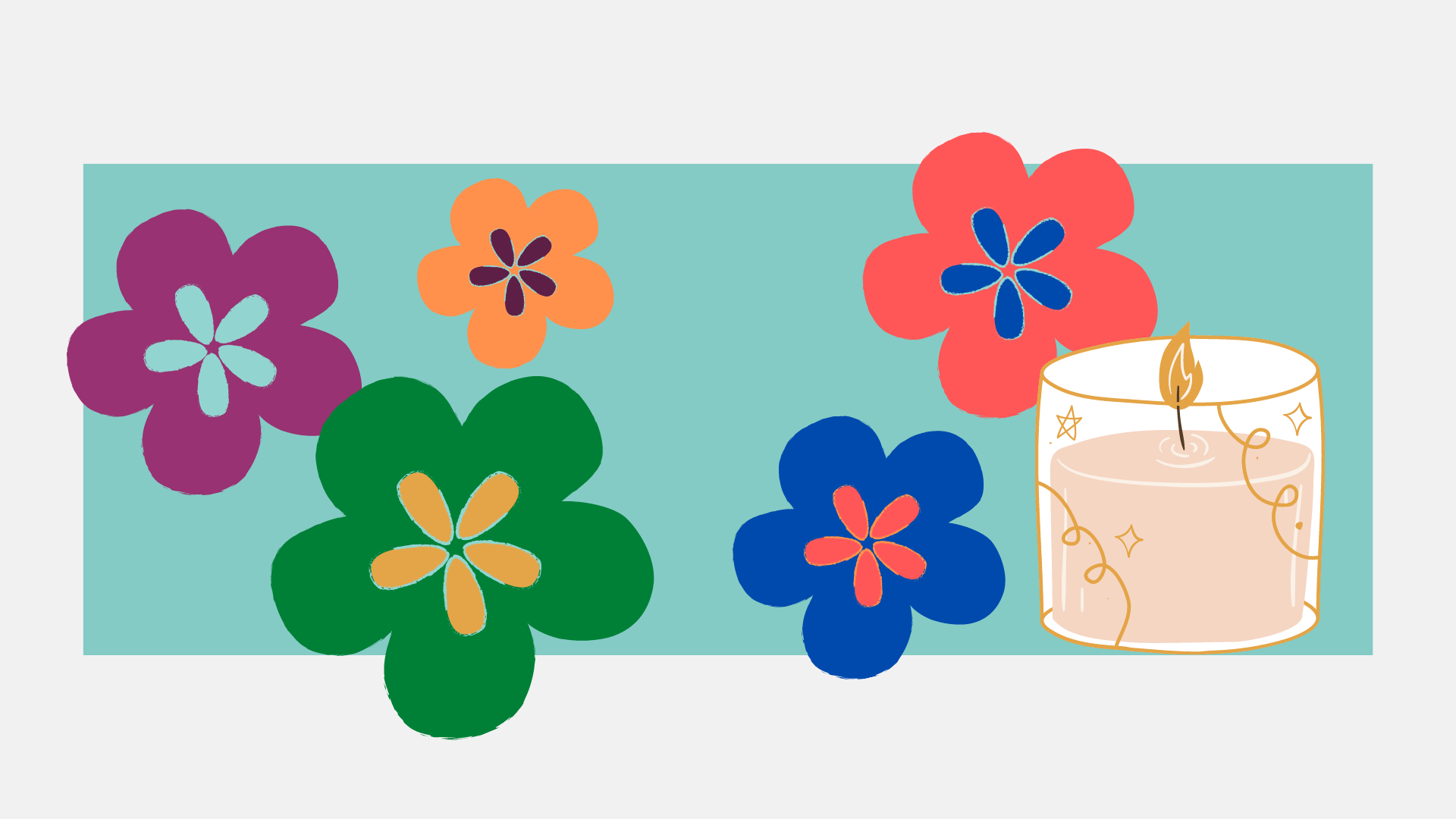2-3-22 Encanto, Part 2 Glenda Simpkins Hoffman
The new Disney animated film Encanto, which means “enchantment or charm,” lives up to its name. Abuela Alma, the matriarch of the Madrigal family, was given a miracle in a candle that magically created an enchanted home in an enchanted valley where the family has lived for decades.
In my previous post, I wrote about how the enchanted house begins to crack and crumble. This is a metaphor for the ways the family is beginning to fall apart because individuals are beginning to wake up to how they are seen and valued for what they can do rather than for who they are. This is a temptation in every family and group, even followers of Christ. Understanding the gospel helps us to live the truth of who we are and whose we are as those created by God in love, redeemed by grace through faith in Jesus, and empowered by the Spirit.
But there is another side of the story. Not only does the family overvalue gifts and strengths, they avoid what makes them feel weak or vulnerable. “We Don’t Talk about Bruno,” the film’s most popular song, reveals the Madrigal family’s strategy for dealing with difficult people, topics, and emotions.
Bruno is one of the triplets and the only son of Abuela Alma, the matriarch. His special gift is the ability to see the future. However, many in his family and the community believe he controls the future, so they blame him when bad things happen. There are other things about Bruno that are unique, different, and not appreciated or understood. Ten years earlier, Bruno had a vision of the crumbling house, which brought a lot of anxiety into the family system. He disappears and the family takes up the mantra “We don’t talk about Bruno.”
This creative and insightful story unpacks a very important reality of human dynamics. People resist seeing what they don’t want to see because it’s easier to avoid difficult topics or to project our problems onto others than it is to take the time to listen, to seek understanding, and to communicate effectively. Sadly, anxiety and fear keep people apart—keep us from authentically connecting and loving each other.
While no one in the family has seen Bruno for ten years, he has actually been hiding in the house. Unbeknownst to them, he has watched his family and worked to help patch the cracking and crumbling house. Again, it’s a powerful metaphor for how we as individuals, families, and communities fail to pay attention to what is not always easily seen or understood.
The Madrigals are not unique. Most families, groups, organizations, even churches have things they want to avoid talking about. There often is so much focus on the positive power, the successes, the giftedness that we fail to talk enough about the vulnerable emotions that are under the surface and the challenges that threaten our sense of stability.
We fail to take the time to reach out to really understand others for who they are, what they think and feel. We avoid some people and some conversations because it’s just too uncomfortable, which simply widens the barriers. Thanks to Mirabel, the young woman without any obvious special gift, this family finally starts talking about Bruno, leading to healing, reconciliation, and restoration. The present is always a good time for us to see what we don’t want to see and start talking about it too.
While Mirabel is the family member who is trying to understand what is going wrong with the house and the family, the key to moving forward resides with the matriarch Abuela Alma. She loves her family and has helped to keep the magic going, but it becomes clear in many ways she is the problem because she is very much afraid. She is unaware of how her unresolved pain from her traumatic past is impacting her family.
There is a powerful moment when the house is cracking and crumbling. Abuela blames her granddaughter Mirabel for all that is happening. Mirabel responds, “I will never be good enough for you. No matter how hard I try. No matter how hard any of us try, Luisa will never be strong enough. Isabela will never be perfect enough. Bruno left our family because you only saw the worst in him…. You are the one who broke our home. The miracle is dying because of you.”
This serves as a wake-up call for Abuela who finally returns to the place of her traumatic past and recalls the memory of how she had to flee from her home and witness her beloved husband’s death. She acknowledges to Mirabel the painful emotions of grief and the loss of a life she had imagined for herself, her husband, and her family.
She also acknowledges how her fear of losing her new home and the people she loves drove her to a kind of perfectionism that hurt her family. Her life has been driven by the false belief that it was up to her to keep the miracle going, to make sure the family earned the gifts given, to keep them safe. Abuela Alma exemplifies the truth that “Pain that is not transformed will be transmitted.”
Abuela finally sees what she had not seen before and takes responsibility for how her emotions, wrong beliefs, words and actions had impacted her family. In that moment of reconciliation with Mirabel, a kaleidoscope of butterflies appear, a symbol of transformation and new life.
We too are to seek healing for past wounds. Too many of us carry the burden of thinking everything is up to us, that we have to hold everything together. These beliefs are often formed in early childhood when we are good receivers of information but not good interpreters. Or they can be forged in the midst of traumatic experiences.
We need to find healing for past wounds and replace our false beliefs with truth so that we are free to live the life of love, joy, and peace, that Jesus brings to us individually and together as his body. VPC’s Renewing Prayer is a ministry that is invaluable in identifying underlying emotions and false beliefs, which helps lead to truth, healing, and transformation.
We need to be willing to have God open our eyes to see what we may not be seeing about what’s under the surface. This usually involves facing emotions that we either numb, ignore, or project on to others. But this is only the beginning. We then need to assess and take responsibility for our beliefs (true or false), words (kind or harsh), and actions (loving or unloving) and how that may be negatively affecting our children, family, friends, coworkers, and others. This may involve confession, as it did for Nehemiah and Abuela. It may be engaging in uncomfortable conversations that lead to deeper understanding, connectedness, and compassion. It may mean stepping out in faith to do what is good and right as Mirabel did, even when it means tackling resistance from people in power or even the people we love the most.
After this crucial conversation, Abuela and Mirabel return to the family. In the song “All of You,” Mirabel inspires the family with working together to rebuild a home with a new foundation, one in which they believe and live the truth that “you’re more than just your gift.” Abuela apologizes to the family, saying, “I’m sorry I held on too tight. Just so afraid I’d lose you too. The miracle is not some magic that you’ve got. The miracle is you, not some gift, just you. The miracle is you. All of you, all of you.” Finally the family not only starts talking about Bruno, but welcomes him back into the family fold.
“All of You” conveys a wonderful message of being able to integrate and claim the fullness of who we are as human beings. As Tim Keller writes, “The gospel is this: We are more sinful and flawed in ourselves than we ever dared believe, yet at the very same time we are more loved and accepted in Jesus Christ than we ever dared hope.” The grace of the gospel enables us to live with both humility and confidence. We can face the truth about ourselves without fear or guilt or shame. We can live with love, joy, peace, hope, and true gratitude for being fully human, fully alive in Christ.
“All of You” is also about claiming the diversity of the family. In real authentic relationships and community, we can acknowledge and claim our strengths and gifts, but we also are free to share our weakness, our pain, our hurts. We experience love and acceptance as we risk being vulnerable and authentic. Like Mirabel, we can not only see “all of you,” but we open our eyes and say, “I see me, all of me.”
Together with the townspeople’s help, the Madrigal family rebuilds their home on a new foundation of love. To their surprise, the magic returns without the candle because the real power is not the magic or the special gifts. The real power is in the people and the love they share for each other and for their community.
As we study Nehemiah, we are watching the nation of Israel work together to build the walls around Jerusalem. As they participate in this important work, God is transforming the people, preparing them to be his people who love and worship the Lord with their whole being and live for his glory and the good of others. While there are external opponents, the greatest threat comes from within to give into false beliefs about themselves and their circumstances rather than living the truth about God and themselves: “Remember the Lord, who is great and awesome…. Our God will fight for us” (Nehemiah 4:14, 20).
We at VPC are in a new season of ministry at VPC, but God is at work transforming us individually and collectively to be those who love God and love others as he has loved us. It’s a good time to ask ourselves, “Am I seeing what I need to see about myself, my family, and others? Am I willing to talk about it with others, or am I avoiding my problems or projecting my pain or discomfort on others?”
Our church is not crumbling, but we are in a unique time in our history as we are moving into a new future coming out of a pandemic with a new lead pastor. Each of us has been invited to engage with the transformation teams. As Hope reminded us two Sundays ago, now is the time to talk—not six months from now.
This a time to see what we may not have seen and to talk about what may be uncomfortable. We have the opportunity to experience deeper transformation as the people of God right here, right now so that we can give glory to God, shine his light, and share his love with each other and in our community in ways beyond our imagination.


